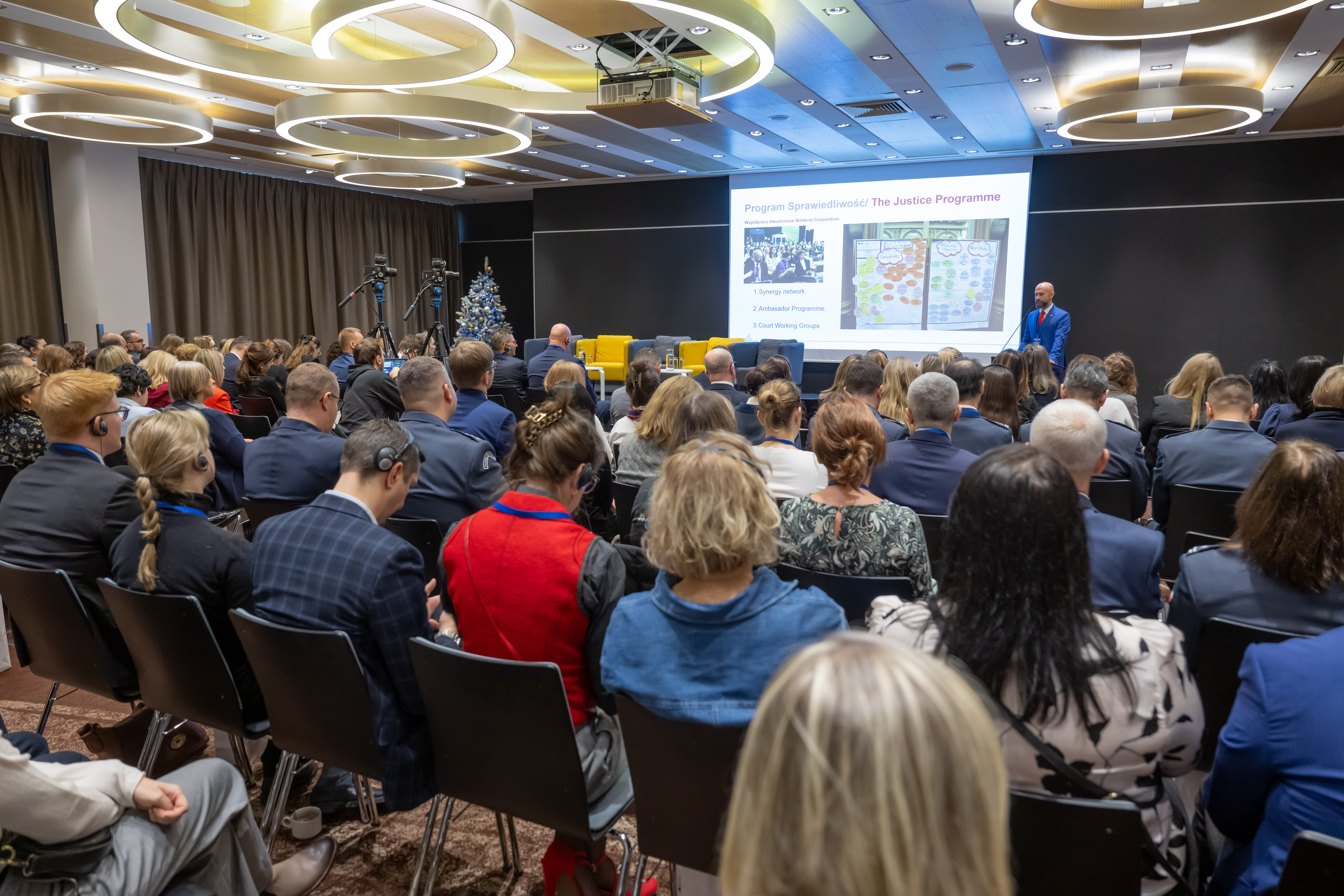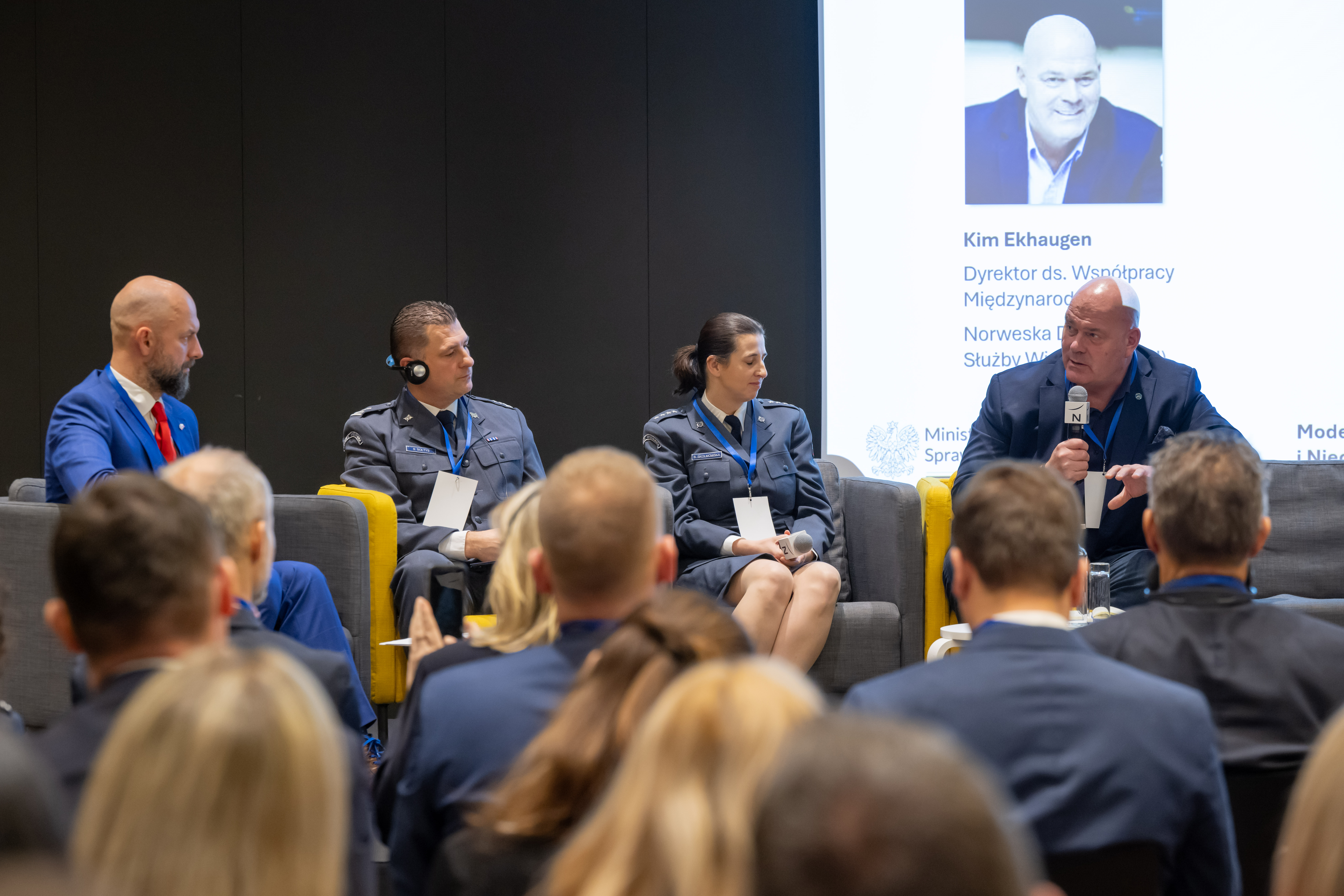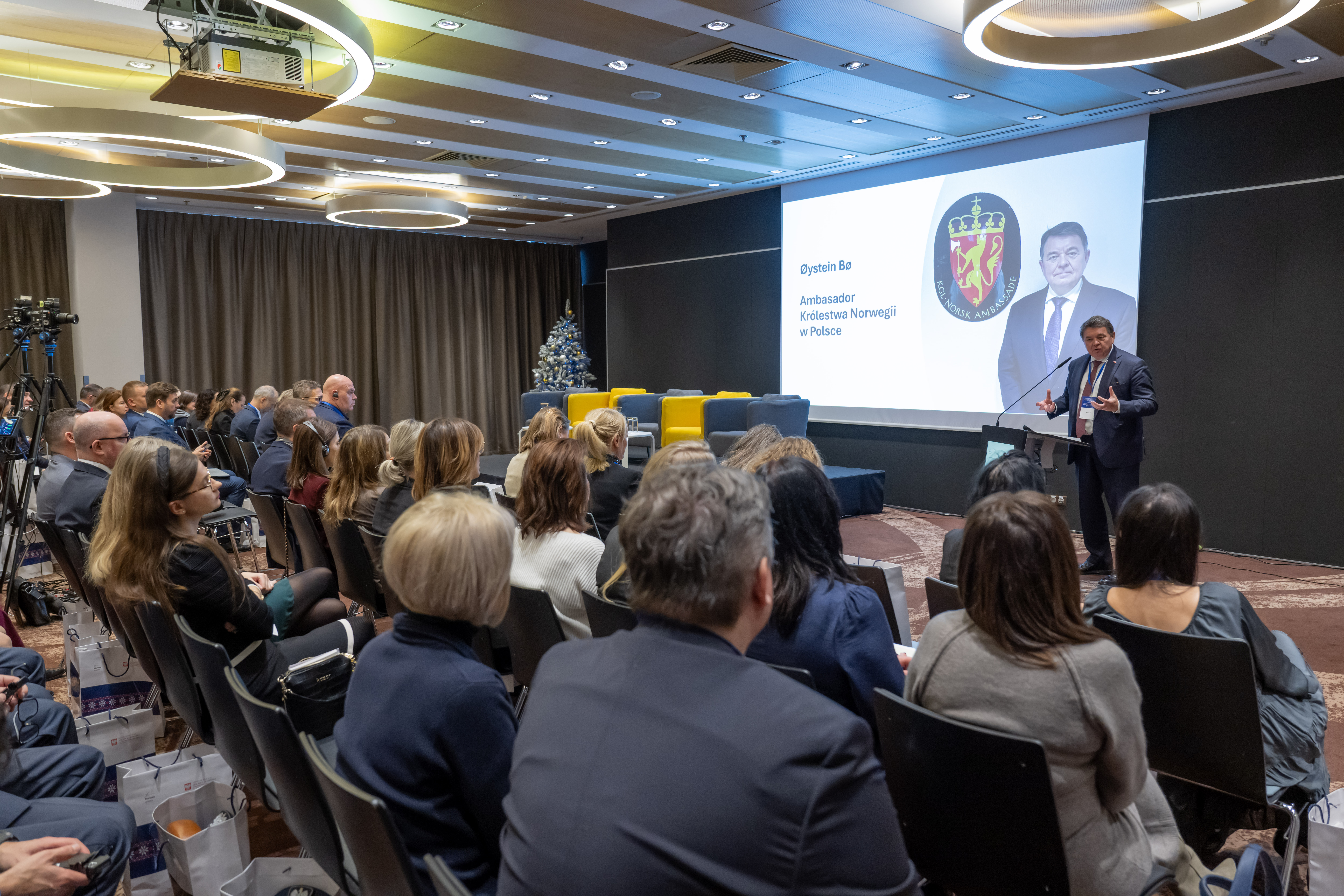Justice Programme closing event (Polish language)
€67 million from the Norway Grants for the years 2014-2021 was allocated to improve the prison system and prevent violence. The effects of the Justice Programme were discussed on December 12 during the closing conference of the programme.
The Justice Programme is a unique undertaking within the Norway Grants. With a relatively large pool of funds - around €67 million (6th place among programs funded by the EEA and Norway Grants in Poland) - it supported only two areas:
- prison system,
- violence prevention.
The vast majority of the programme's funds were allocated to three predefined projects, i.e., those that did not have to be selected in competitions but were included in the program "by default". These projects are:
- The Pilot rehabilitation complexes for inmates - implemented by the Central Board of Prison Service in Poland,
- The Integrated System of Domestic Violence Prevention - implemented by the Institute of Law,
- Preventing violence against the elderly and people with disabilities - implemented by the Ministry of Justice.
 Tomasz Gajewski, Deputy Director of the Department of Funds and Free Legal Aid at the Ministry of Justice, presents the Programme's outcomes (photo: Ministry of Justice)
Tomasz Gajewski, Deputy Director of the Department of Funds and Free Legal Aid at the Ministry of Justice, presents the Programme's outcomes (photo: Ministry of Justice)
Support for correctional services
The largest of these is the project to build four pilot prison complexes - modern prisons consisting of a building for inmates, a so-called halway houses for prisoners who are completing their sentences, and a production hall. In total, 784 places were created in the pavilions and 120 places in halfway houses.
In addition, new motivational programmes for officers were implemented in 10 penal institutions. 1550 prison officers participated in educational and training programs. 2947 prison judges, probation officers and prison staff were also trained.
 Officers of the Polish Prison Service attending the conference (photo: Ministry of Justice)
Officers of the Polish Prison Service attending the conference (photo: Ministry of Justice)
The project was implemented in partnership with institutions operating within the Norwegian prison system, such as the Directorate of Norwegian Correctional Service and a sectoral university (The University College of the Norwegian Correctional Service), as well as prisons.
Officers of the Polish Prison Service frequently visited Norway and learned from the experiences of the Norwegian prison system. The recidivism rate (return to crime after serving a sentence) in the Norwegian prison system is one of the lowest in Europe. It is often attributed to the country's approach to punishment, which places a strong emphasis on rehabilitation and preparing prisoners to return to society. After 2 years of serving a sentence, about 20% of inmates commit new crimes, and after 5 years - 25%. In Poland, the indicator after 5 years is about 40%.
 A panel discussion on the infrastructure that supports resocialization (photo: Ministry of Justice)
A panel discussion on the infrastructure that supports resocialization (photo: Ministry of Justice)
Violence prevention
In the case of the "The Integrated System of Domestic Violence Prevention" project, researchers from the Nicolaus Copernicus University in Toruń and the University of Stavanger studied risk factors for domestic violence, and then created a model that assumes action before this violence occurs.
"Some of the research results were shocking for me. They showed how enormous the issue of violence is, how difficult it is to identify and how much help is needed for people who are sometimes not even able to say that they are experiencing it" - said Tomasz Gajewski, Deputy Director of the Department of Funds and Free Legal Aid at the Ministry of Justice, during the conference.
After developing the violence prevention model, it was tested by local governments selected in a call for proposals, which received funding for this purpose from the Small Grants Fund. With the help of the Norway Grants, they created Family Centers. The centers offer, among other things, psychological, family, and social counseling, as well as couple therapy. They help improve relationships in a relationship, develop communication skills and resolve conflicts.
The call for proposals related to the project on preventing violence against the elderly and disabled had a different character. Local governments did not test the centrally created model, but created their own local violence prevention programmes.
As part of projects from both calls, approximately 25,850 people received assistance. 14 Family Centers were created, and 1950 people were trained in preventing violence against the elderly and disabled.
 Address by His Excellency Øystein Bø, Ambassador of the Kingdom of Norway to Poland (photo: Ministry of Justice)
Address by His Excellency Øystein Bø, Ambassador of the Kingdom of Norway to Poland (photo: Ministry of Justice)
Unique film festival
In addition, activities were implemented within the framework of the Bilateral Cooperation Fund - the aim of which is to strengthen bilateral relations between Donor States (Norway, Iceland and Liechtenstein) and Beneficiary States.
An interesting undertaking financed from this pool was the International Film Festival "Prison Movie". The festival screens films on prison themes. They are created by professional filmmakers, but also by prisoners themselves. The creators of the winning films are awarded the Good Villain statuettes.
In 2024, the festival took place for the twelfth time. It is organized by the District Inspectorate of the Prison Service in Olsztyn in cooperation with the Ministry of Justice, the Marshal's Office of the Warmian-Masurian Voivodeship and the Olsztyn Detention Center.
During the closing conference of the Justice Programme, Major Magdalena Socha, press spokesperson for the District Inspector of the Prison Service in Olsztyn, who has been responsible for the festival since 2021, and the festival's initiator, chaplain of the Olsztyn Detention Center, Włodzimierz Kobus, talked about the festival.
 Major Magdalena Socha from the Polish Prison Service presents the Prison Movie International Film Festival (photo: Ministry of Justice)
Major Magdalena Socha from the Polish Prison Service presents the Prison Movie International Film Festival (photo: Ministry of Justice)
"What happens during these films is a script that life itself writes. Paradoxically, it concerns not only what is behind the wall, behind bars, behind this world that is inside the prison, but also concerns the inmates, us officers, families and society" - said Major Magdalena Socha.
You can find out more about the festival at https://prisonmovie.pl/en/home-en/

